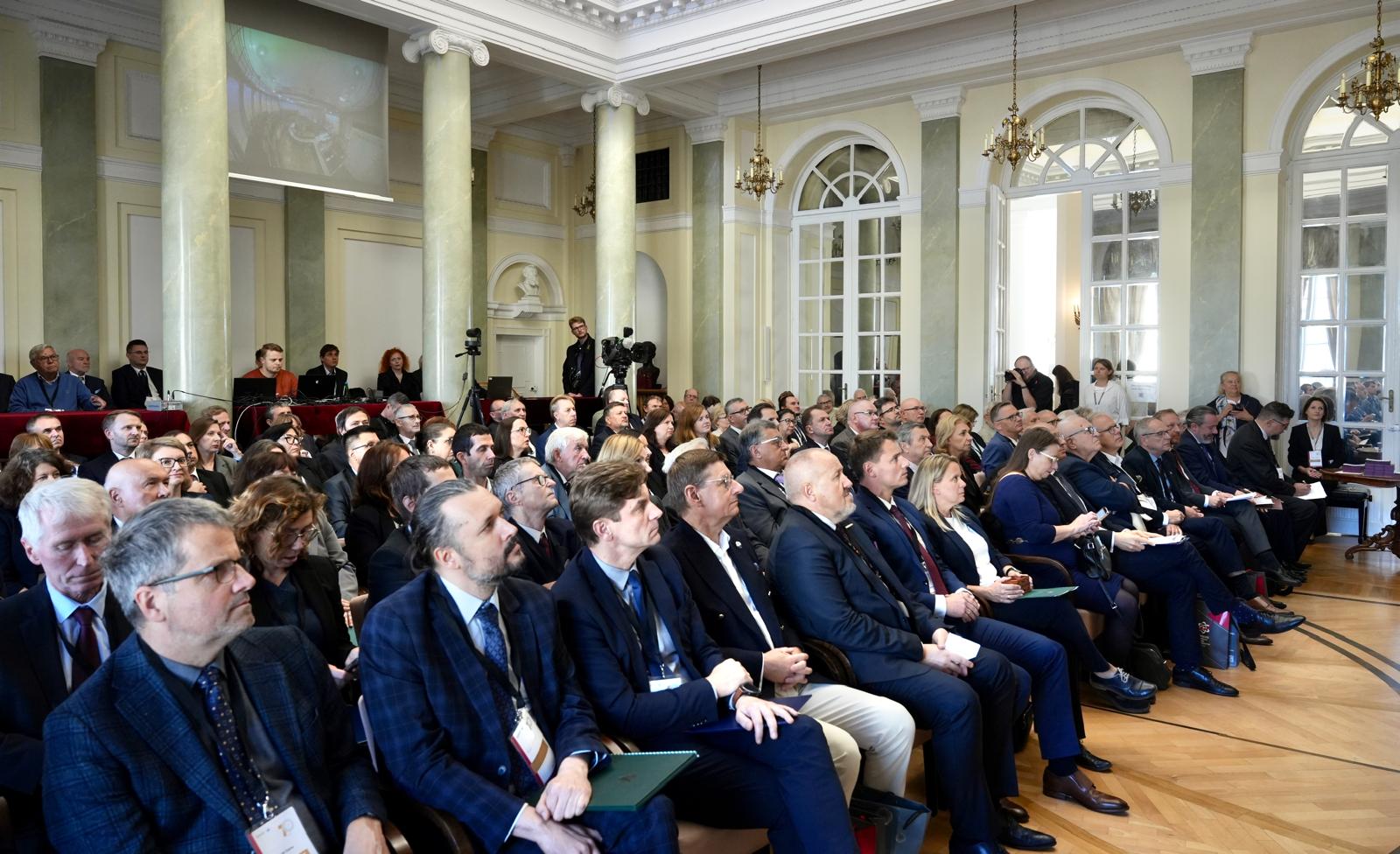
70 years of Polish nuclear research – from research reactors to the energy of the future
25-09-2025
Polish nuclear energy is celebrating 70 years of development. From the launch of the first research reactor in Świerk, through decades of research, innovation and radioisotope production, to plans to build modern power plants – the history of Polish nuclear energy is a story of knowledge, determination and the enormous contribution of scientists to the country's development.
A festive anniversary gala was held at the Staszic Palace in Warsaw, bringing together representatives of the government, science and industry. It was an opportunity to summarise the achievements of the National Centre for Nuclear Research (NCBJ) and the Institute of Nuclear Chemistry and Technology (ICHTJ), as well as to look into the future of nuclear energy in Poland.
The beginnings of Polish nuclear energy
The history of the Polish nuclear programme began in the 1950s. In 1954, the government of the People's Republic of Poland passed a top-secret resolution to begin research into atomic energy. A year later, the Institute of Nuclear Research (IBJ) was established, which became the largest scientific centre in this field in the country.
In 1958, the first Polish research reactor, EWA, began operating in Świerk, followed a few years later by the MARIA reactor, which was designed in-house. The latter, after numerous upgrades, is still in operation today and in 2025 received an indefinite operating licence.
The IBJ was also of great importance to industry: it produced radioisotopes for medicine, implemented radiation sterilisation of medical equipment, developed unique materials and cooperated with chemical and metallurgical plants throughout the country.
Contribution to science and industry
Polish researchers have been participating in international projects for years, including CERN and ITER. Cooperation with the International Atomic Energy Agency (IAEA) has enabled the exchange of knowledge and staff training.
"Nuclear institutes play an extremely important role in supplying radiopharmaceuticals for medicine, sterilising medical equipment and transplants, and they also participate in the development of renewable energy sources, environmental protection and materials technologies. Without their staff and infrastructure, it would not be possible to create a safe nuclear energy sector," emphasised Prof. Andrzej Chmielewski, director of ICHTJ.
Jubilee speeches
Representatives of the state administration and the scientific community took the floor during the gala.
Secretary of State at the Ministry of Energy, Wojciech Wrochna, highlighted the role of research institutes: ‘It is thanks to the work of our institutes that the technologies, personnel and know-how have been developed, without which we would not be able to think about building nuclear power plants today.’
Director of the Nuclear Energy Department, Dr Paweł Gajda, added: 'Poland needs both large nuclear power plants and small modular reactors. Together, they will create a system capable of ensuring stable energy supplies and the development of modern industry.'
Director of the National Centre for Nuclear Research, Prof. Jakub Kupecki, reminded us of our responsibility towards future generations: 'Over 70 years, we have built the foundation on which the entire Polish nuclear energy sector stands today. It is our duty to develop the technologies of the future and educate new generations of experts.'
Polish nuclear energy – challenges for the future
The construction of the first nuclear power plants, the development of small modular reactors (SMRs) and the creation of a national supply chain are the tasks facing Poland today.
‘We translate research results into practical solutions – from the production of radioisotopes and radiopharmaceuticals to technologies for industry and energy. Thanks to this, Poland can build its position in the European and global low-carbon economy,’ added Prof. Kupecki.
Thanks to the many years of experience of the NCBJ and ICHTJ, Poland has a solid foundation for developing nuclear energy in a safe, modern and climate-friendly way. The 70th anniversary shows that the history of Polish nuclear research is not only a thing of the past, but above all an asset for the future.







